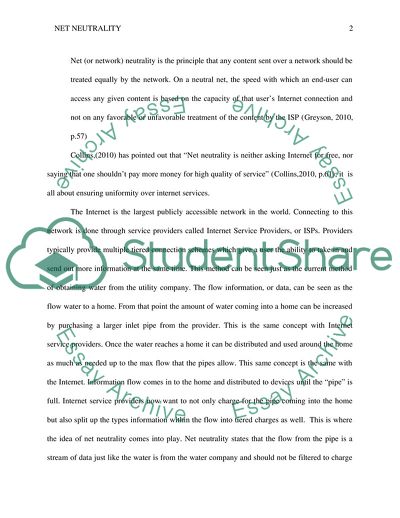Cite this document
(Arguments For and Contra Net Neutrality Literature review Example | Topics and Well Written Essays - 2000 words, n.d.)
Arguments For and Contra Net Neutrality Literature review Example | Topics and Well Written Essays - 2000 words. https://studentshare.org/information-technology/1754839-the-argument-for-net-nuetrality
Arguments For and Contra Net Neutrality Literature review Example | Topics and Well Written Essays - 2000 words. https://studentshare.org/information-technology/1754839-the-argument-for-net-nuetrality
(Arguments For and Contra Net Neutrality Literature Review Example | Topics and Well Written Essays - 2000 Words)
Arguments For and Contra Net Neutrality Literature Review Example | Topics and Well Written Essays - 2000 Words. https://studentshare.org/information-technology/1754839-the-argument-for-net-nuetrality.
Arguments For and Contra Net Neutrality Literature Review Example | Topics and Well Written Essays - 2000 Words. https://studentshare.org/information-technology/1754839-the-argument-for-net-nuetrality.
“Arguments For and Contra Net Neutrality Literature Review Example | Topics and Well Written Essays - 2000 Words”. https://studentshare.org/information-technology/1754839-the-argument-for-net-nuetrality.


